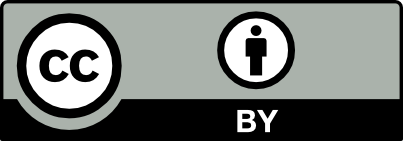Possibilities for detection of the change of biodegradability of wastewater by dielectric constant measurements
DOI:
https://doi.org/10.14232/analecta.2020.1.142-146Keywords:
dielectric measurements, wastewater, biodegradability, solubilityAbstract
Nowadays, the development of rapid and non-destructive measurement methods have high importance. The dielectric measurement is a promising technique to detect the chemical and physicho-chemical change of different materials. The dielectric behavior of pure water is widely investigated for decades, but there is very few information available related to the dielectric parameters of wastewater. Our study aims to investigate the applicability of dielectric measurements for the detection of the change of biodegradability of wastewater. In the experiments the change of organic matter solubility and biodegradability of sugar beet processing wastewater, meat processing wastewater, dairy industry wastewater and municipal wastewater was examined. Our results show that dielectric constant - measured at the frequency of 2400 MHz - has a strong linear correlation with the soluble chemical oxygen demand (SCOD), which makes possible the fast detection of disintegration efficiency of different wastewater and sludge treatment processes, or the organic matter removal efficiency of wastewater purification technologies. Furthermore, our results verified that the change of aerobic biodegradability (expressed in BOD5/SCOD ratio) show also good linear correlation with the dielectric constant. These preliminary results enable to develop a dielectric behavior based detection method for the estimation of the efficiency of wastewater treatment processes.
Downloads
References
Sosa-Morales M .E. , Valerio-Junco L., López-Malo A. , García H. S. (2010): Dielectric properties of foods: Reported data in the 21st Century and their potential applications, LWT - Food Science and Technology 43 pp.:1169-1179.
Tiitta M., Kainulainen P., Harju A. M., Venäläinen M., Manninen A., Vuorinen M., and Viitanen H. (2003): Comparing the effect of chemical and physical properties on complex electrical impedance of Scots pine wood, Holzforschung. 57(4), pp.: 433-439
Bobowski J. S., Johnson T., and Eskicioglu C. (2012) Permittivity of Waste- Activated Sludge by an Open-Ended Coaxial Line, Progress in Electromagnetics Research Letters. 29, pp.: 139-149
Salas W. A., Ranson J. K., Rock B. N., Smith K.T. (1994): Temporal and spatial variations in dielectric constant and water status of dominant forest species from New England, Remote Sensing of Environment, 47(2), pp.: 109-119
Nelson S.O. (1996): Determining Dielectric Properties of Coal and Limestone by Measurements on Pulverized Samples, Journal of Microwave Power and Electromagnetic Energy, 31(4), pp.: 215-220
Holtz E., Ahrné L., Rittenauer M., Rasmuson A. (2010): Influence of dielectric and sorption properties on drying behaviour and energy efficiency during microwave convective drying of selected food and non-food inorganic materials, Journal of Food Engineering 97, pp.: 144–153
Lievonen S.M., Roos Y.H. (2003): Comparison of dielectric properties and non-enzymatic browning kinetics around glass transition, Innovative Food Science and Emerging Technologies 4, pp.: 297–305
Jákói Z., Hodúr C., László Z., beszédes S. (2018): Detection of the efficiency of microwave–oxidation process for meat industry wastewater by dielectric measurement, Water Science & Technology 78(10), pp.: 2141-2148
Kovács V.P., Lemmer B., Keszthelyi-Szabó G., Hodúr C., Beszédes S. (2018): Application of dielectric constant measurement in microwave sludge disintegration and wastewater purification processes, Water Science & Technology 77(9), pp.: 2284-2291
Downloads
Published
How to Cite
Issue
Section
License
Copyright (C) 2024 Authors
This work is licensed under a Creative Commons Attribution 4.0 International License.













